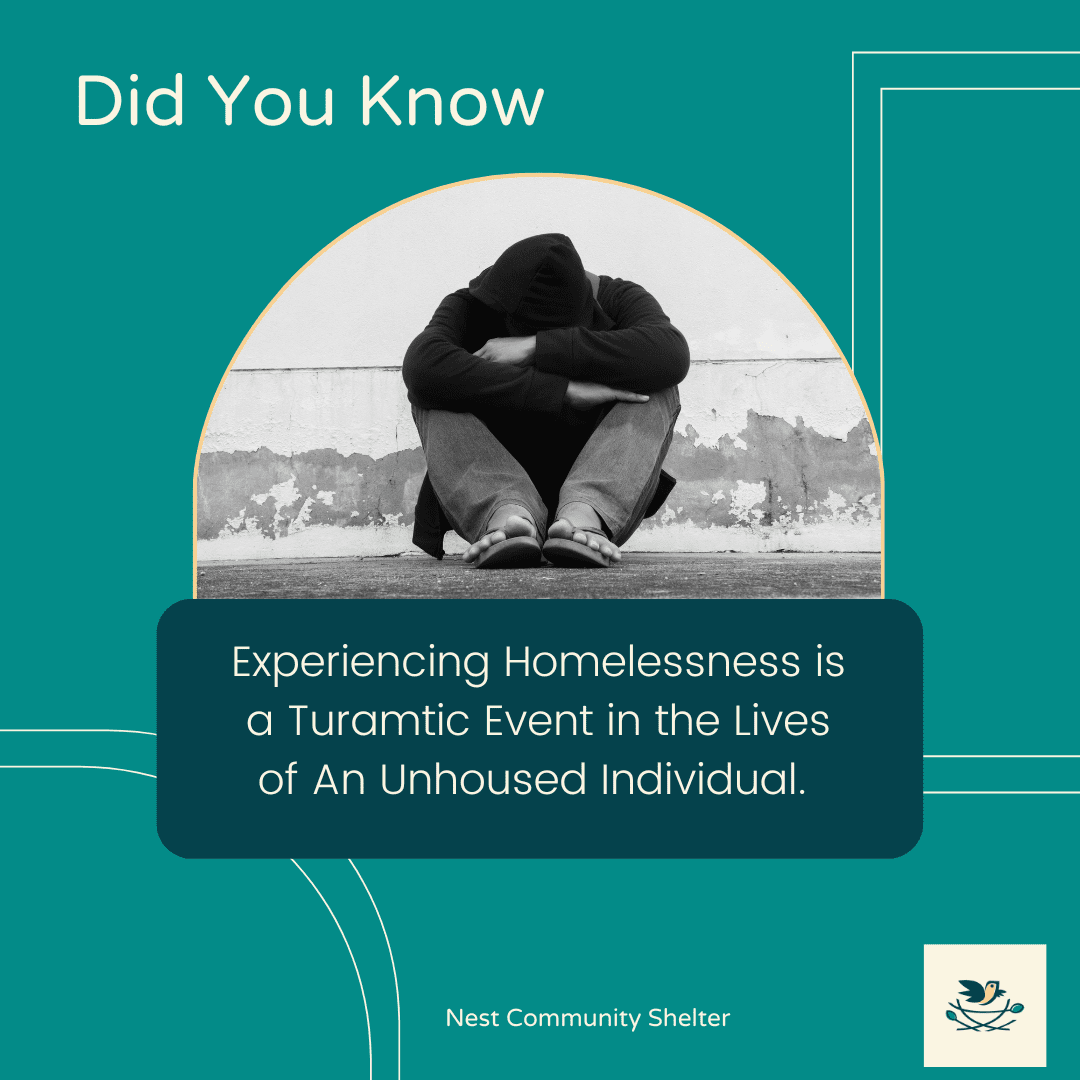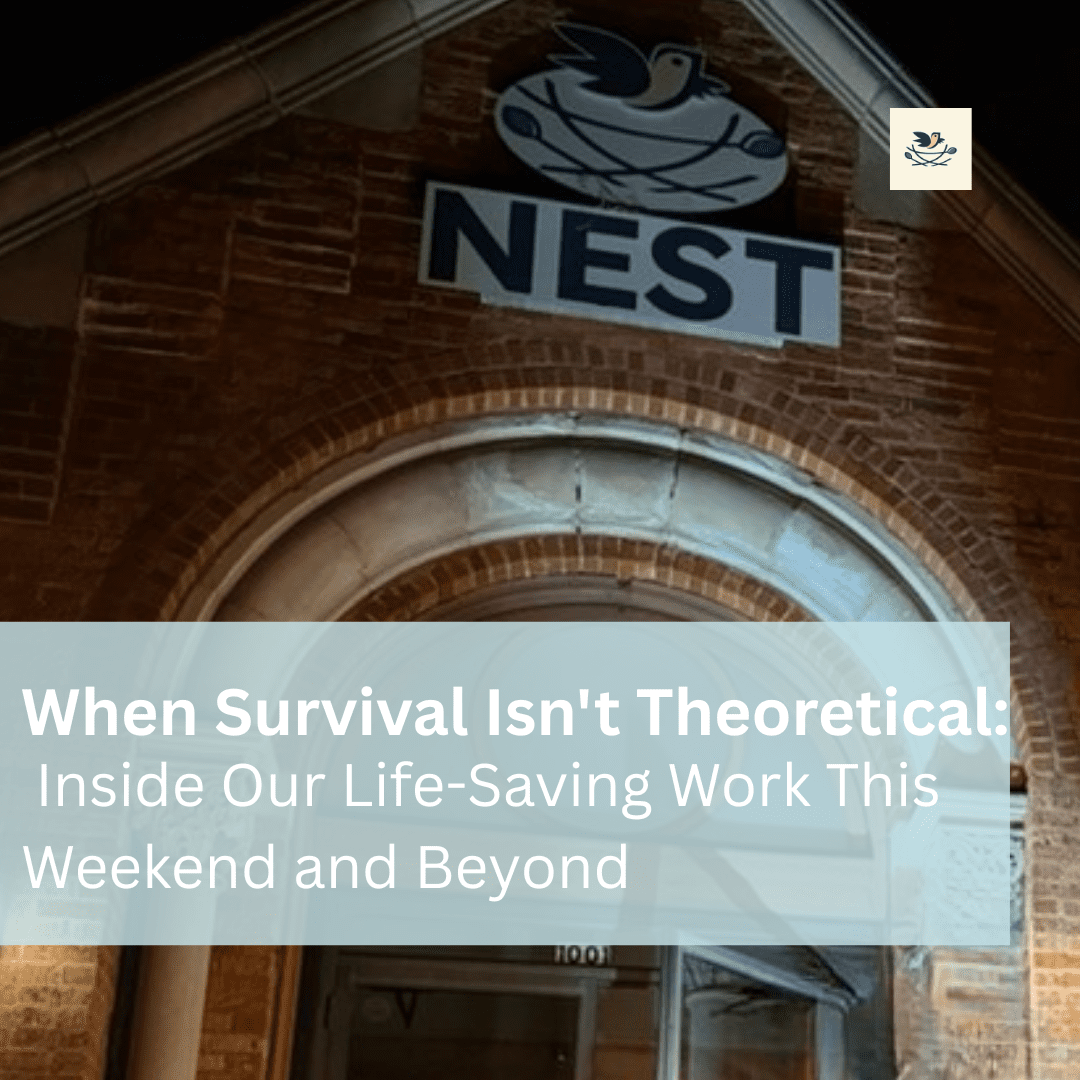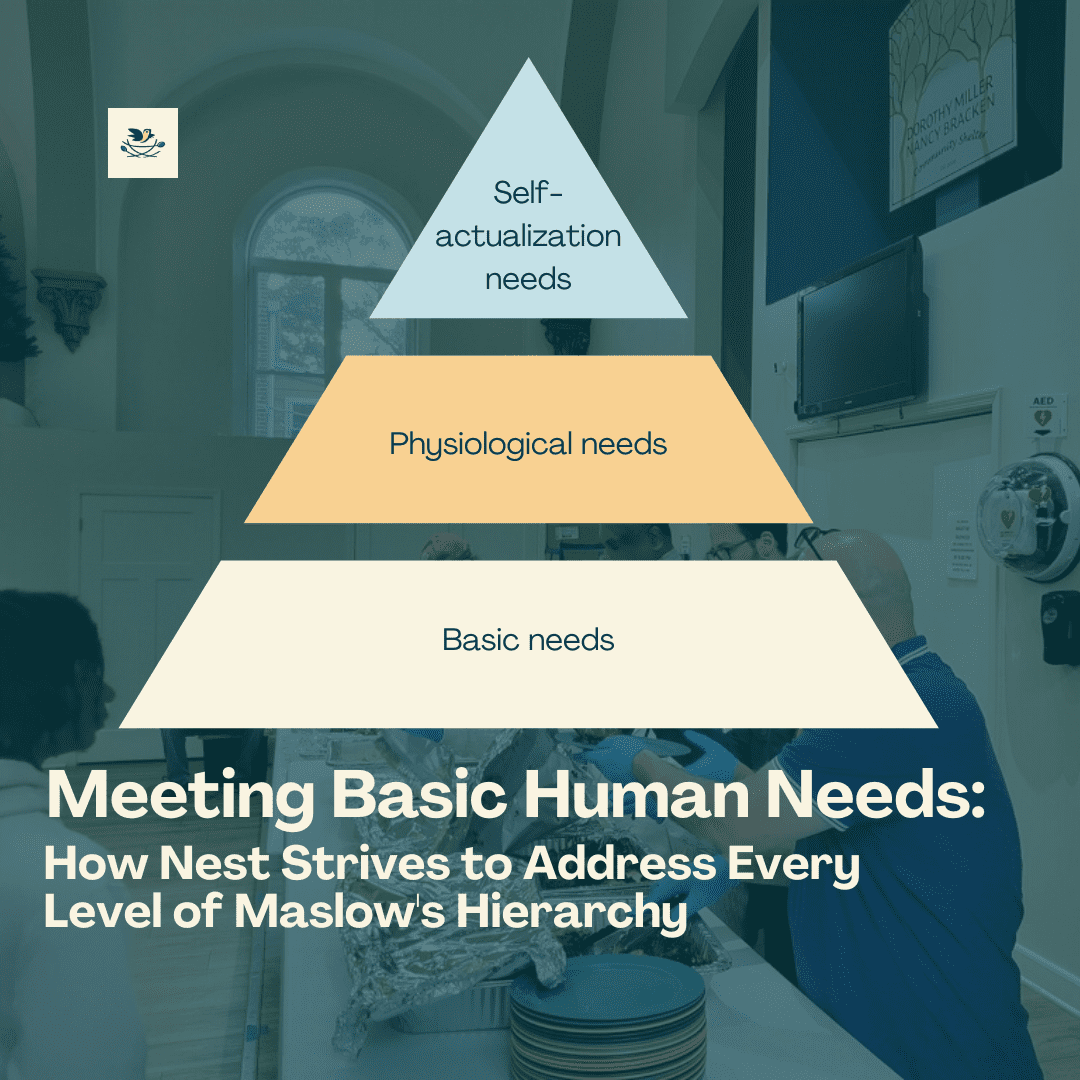
Homelessness is a harsh reality that affects millions of individuals worldwide and many individuals in our community, stripping them of basic human needs and plunging them into a relentless struggle for survival. Beyond the visible hardships of living on the streets, experiencing homelessness can inflict severe psychological trauma, exacerbating any underlying mental health conditions or even triggering new ones. Experiencing homelessness in itself can be a traumatic event. As we continue our series on mental health and those who are experiencing homelessness, we are going to delve into the profound impact that experiencing homelessness can have on one’s mental well-being and explore the often-overlooked connection between life on the streets and mental health struggles.
Experiencing homelessness is so much more than a lack of shelter; it is a daily battle against isolation, insecurity, and a constant fight for survival. The uncertainty of where the next meal will come from or where a safe place to sleep can be found creates an environment of chronic and overwhelming stress. This chronic stress is a critical factor in the development or exacerbation of mental health disorders. The stress of experiencing homelessness can be all-encompassing and is often a trigger for other underlying mental health issues. Some of the most common mental health issues currently impacting the unhoused population as a whole are:
Post-Traumatic Stress Disorder (PTSD): Homelessness will undoubtedly expose individuals to traumatic experiences, lack of security, and the ability to meet basic needs such as housing, food, and essential care. When individuals find themselves out on the street, this stress increases as often acts of violence, theft, or even extreme weather conditions are common occurrences. These traumatic events can lead to the development of PTSD, a condition characterized by flashbacks, nightmares, and severe anxiety.
Depression and Anxiety: The instability and unpredictability of life on the streets often contribute to the onset of depression and anxiety disorders, as well as making these underlying illnesses so much more prevalent in the daily lives of those impacted. The lack of a stable routine, social support, and a sense of security all contribute to a heightened state of emotional distress.
Substance Abuse: Not all individuals experiencing homelessness also experience a substance abuse disorder, but there can be a direct connection about the connection between the two issues. Many individuals experiencing homelessness turn to substance abuse as a coping mechanism or have been struggling with a substance abuse disorder that led them to experience homelessness. Whether to numb the pain or escape the harsh realities of their situation, substance abuse disorder can further complicate mental health issues and perpetuate the cycle of homelessness.
Social Isolation: Homelessness often leads to social isolation, as individuals may face judgment, stigma, or simply struggle to connect with others. Loneliness and a lack of social support are well-documented risk factors for mental health issues.
Barriers to Mental Health Care:
Unfortunately, access to mental health care is a significant challenge for those experiencing homelessness. Stigma, financial constraints, and the lack of stable living conditions often create substantial barriers to seeking and receiving appropriate mental health support. The very nature of homelessness makes it difficult for individuals to engage in consistent and long-term mental health treatment.
Breaking the Cycle of mental illness and homelessness is complicated and, at times, very challenging. Addressing the mental health challenges associated with homelessness requires a multifaceted approach that Nest Community Shelter strives to support. Increased Accessibility to Mental Health Services: Through community partnerships with mental health providers, Nest works to support healing for our unhoused guests. Further initiatives aimed at bringing mental health services directly to our unhoused populations can help bridge the accessibility gap. Mobile clinics, outreach programs, and other collaborations can provide crucial mental health support for Nest’s guests.
Raising awareness about the mental health challenges faced by those experiencing homelessness is essential. By continuing to bring this topic to light, we can help reduce stigma, encourage empathy, and garner support for comprehensive solutions. The guests of Nest Community Shelter are our neighbors and fellow community members who need our support as a community.
Experiencing homelessness is a profoundly traumatic experience that has far-reaching consequences on mental health. To break the cycle of homelessness and mental illness, it is crucial to address both the immediate needs of individuals on the streets and the underlying mental health challenges they face. By fostering compassion and understanding and implementing comprehensive support systems, we can work towards creating a society where everyone has the opportunity to rebuild their lives and regain their mental well-being.




